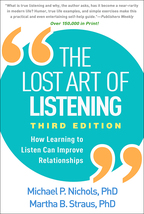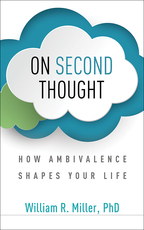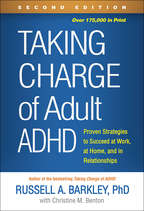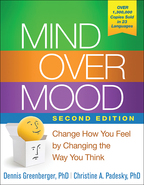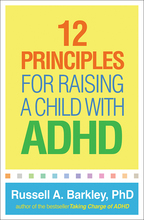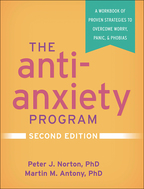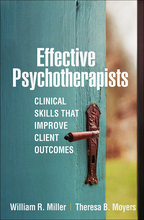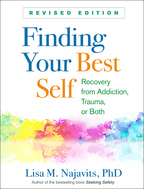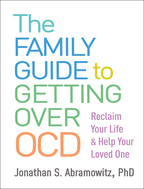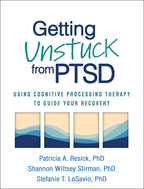The Lost Art of Listening
Third Edition
How Learning to Listen Can Improve Relationships
Michael P. Nichols and Martha B. Straus
HardcoverPaperbacke-bookprint + e-book
Hardcover
orderMarch 24, 2021
ISBN 9781462545049
Price: $30.00 370 Pages
Size: 6" x 9"
Paperback
orderMarch 24, 2021
ISBN 9781462542741
Price: $19.95370 Pages
Size: 6" x 9"
e-book
orderFebruary 22, 2021
PDF and Accessible ePub ?
Price: $19.95 370 Pages
ePub is Global Certified Accessible
print + e-book $39.90 $23.94
orderPaperback + e-Book (PDF and Accessible ePub) ?
Price: 370 Pages
ePub is Global Certified Accessible
| Watch Martha Straus discuss five ways to be a better listener. |  |
Sign up for emails on upcoming titles on Families & Couples (with special discounts)!
“What is true listening and why, the author asks, has it become a near-rarity in modern life? Nichols shows how to utilize this 'art by which we use empathy to reach across the space between us' to improve and repair relationships with spouses, lovers, relatives, children, friends, and colleagues, and even how to boost one's own 'listenability.' He also explains what listening isn't, explaining why people don't listen and listing obstacles to listening (especially defensiveness owing to emotional overreaction). Humor, true life examples and simple exercises make this a practical and even entertaining self-help guide.”

—Publishers Weekly (on the second edition)
“Powerful and informative.”

—Contemporary Psychology (on the second edition)
“Readers from every walk of life—lay readers and mental health professionals alike—will find something to like here, something that really will turn on a lightbulb or two, something that can help us all get along a bit better and listen a bit more artfully.”

—counsellingresource.com (on the second edition)
“A detailed and pragmatic manual for improving listening skills….This text, written from the authors’ clinical perspective, is reader friendly and useful to anyone who communicates with other humans on at least a semiregular basis….School psychologists looking to improve, for example, their consultation or counseling skills will benefit.”

—NASP Communiqué
“I considered myself a good listener before reading this book, and was repeatedly surprised when I recognized myself in the examples of what not to do! It helped me immediately with my spouse, giving me tools to really listen and understand, even when we disagree, so we can find our way to a compromise. I love how funny the authors are and the great examples they weave in. I highly recommend this book to anyone!”

—Christina H., Brattleboro, Vermont
“This book delivers countless epiphanies that will help you become a better listener in all of your relationships. The questions in each chapter guide you to actively explore your own communication strengths and blind spots. The genius of this book comes from its well-told, engaging stories and anecdotes, which are wise and never preachy. The third edition has been superbly updated to cover the impact of technology, and offers invaluable advice for talking across our ever-widening political and social divides.”

—Anne K. Fishel, PhD, coauthor of Eat, Laugh, Talk: The Family Dinner Playbook
“This book could not have come along at a better time. With the bombardment of noise and the narrowing of our screen sizes, everyone needs to read this book to remind us that there is nothing more important than tuning in to one another. The Lost Art of Listening should be required reading!”

—Tammy Nelson, PhD, author of The New Monogamy
“As a school psychologist and trainer of helping professionals, I found the insights and ideas of this book to be immediately applicable to everything I do, from meeting with a struggling student to consulting with a discouraged parent or teacher. That’s because listening is central to effective helping and to every important relationship in our lives. The book’s many practical tips and relatable examples will help readers listen themselves into better relationships with their clients, coworkers, loved ones, and anyone else with whom they regularly interact.”

—John J. Murphy, PhD, Department of Psychology and Counseling, University of Central Arkansas
“It will be hard for readers not to see themselves, and everyone they listen to, in this book. Drs. Nichols and Straus offer an insider's look at what can go wrong in the two-sided process of communicating. Whether you want to improve communication with family, colleagues, or friends, you will learn the skills to listen for the meaning behind the message. The book also takes on the other side of conversation—speaking with clarity. Drs. Nichols and Straus masterfully demonstrate how to open conversations that invite the listener to hear.”

—Margaret Wehrenberg, PsyD, author of The 10 Best-Ever Anxiety Management Techniques
“In my work as a shepherding pastor, then later as a trainer of ministers at the university level, I had always wondered, 'Can empathy be taught?' I was delighted to find this vital caregiving skill addressed in this book. I have used this book in training lay caregivers, pastors, and counselors in the indispensable art of really listening. I believe it is a powerful training resource for our spiritual care and pastoral care practicum coursework. The third edition's new chapter on listening to those with whom you don’t agree could not have come at a more crucial time in our history.”

—Rev. Steven Seaton, MM, co-founder of the Pastoral Care degree programs, Mid-America Christian University
—Publishers Weekly (on the second edition)
“Powerful and informative.”
—Contemporary Psychology (on the second edition)
“Readers from every walk of life—lay readers and mental health professionals alike—will find something to like here, something that really will turn on a lightbulb or two, something that can help us all get along a bit better and listen a bit more artfully.”
—counsellingresource.com (on the second edition)
“A detailed and pragmatic manual for improving listening skills….This text, written from the authors’ clinical perspective, is reader friendly and useful to anyone who communicates with other humans on at least a semiregular basis….School psychologists looking to improve, for example, their consultation or counseling skills will benefit.”
—NASP Communiqué
“I considered myself a good listener before reading this book, and was repeatedly surprised when I recognized myself in the examples of what not to do! It helped me immediately with my spouse, giving me tools to really listen and understand, even when we disagree, so we can find our way to a compromise. I love how funny the authors are and the great examples they weave in. I highly recommend this book to anyone!”
—Christina H., Brattleboro, Vermont
“This book delivers countless epiphanies that will help you become a better listener in all of your relationships. The questions in each chapter guide you to actively explore your own communication strengths and blind spots. The genius of this book comes from its well-told, engaging stories and anecdotes, which are wise and never preachy. The third edition has been superbly updated to cover the impact of technology, and offers invaluable advice for talking across our ever-widening political and social divides.”
—Anne K. Fishel, PhD, coauthor of Eat, Laugh, Talk: The Family Dinner Playbook
“This book could not have come along at a better time. With the bombardment of noise and the narrowing of our screen sizes, everyone needs to read this book to remind us that there is nothing more important than tuning in to one another. The Lost Art of Listening should be required reading!”
—Tammy Nelson, PhD, author of The New Monogamy
“As a school psychologist and trainer of helping professionals, I found the insights and ideas of this book to be immediately applicable to everything I do, from meeting with a struggling student to consulting with a discouraged parent or teacher. That’s because listening is central to effective helping and to every important relationship in our lives. The book’s many practical tips and relatable examples will help readers listen themselves into better relationships with their clients, coworkers, loved ones, and anyone else with whom they regularly interact.”
—John J. Murphy, PhD, Department of Psychology and Counseling, University of Central Arkansas
“It will be hard for readers not to see themselves, and everyone they listen to, in this book. Drs. Nichols and Straus offer an insider's look at what can go wrong in the two-sided process of communicating. Whether you want to improve communication with family, colleagues, or friends, you will learn the skills to listen for the meaning behind the message. The book also takes on the other side of conversation—speaking with clarity. Drs. Nichols and Straus masterfully demonstrate how to open conversations that invite the listener to hear.”
—Margaret Wehrenberg, PsyD, author of The 10 Best-Ever Anxiety Management Techniques
“In my work as a shepherding pastor, then later as a trainer of ministers at the university level, I had always wondered, 'Can empathy be taught?' I was delighted to find this vital caregiving skill addressed in this book. I have used this book in training lay caregivers, pastors, and counselors in the indispensable art of really listening. I believe it is a powerful training resource for our spiritual care and pastoral care practicum coursework. The third edition's new chapter on listening to those with whom you don’t agree could not have come at a more crucial time in our history.”
—Rev. Steven Seaton, MM, co-founder of the Pastoral Care degree programs, Mid-America Christian University

